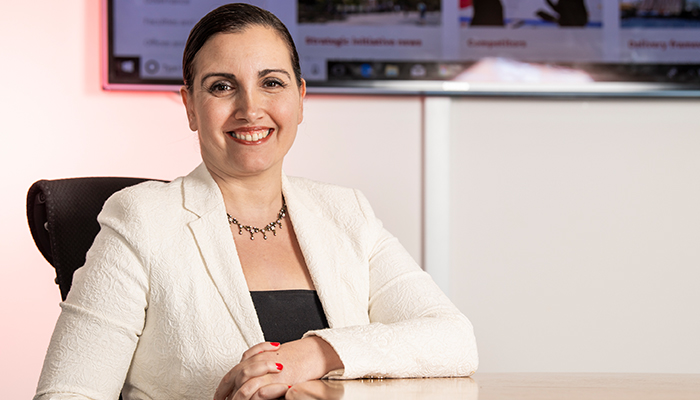COVID-19 is a major disruptor for higher education. In the wake of this crisis, universities all around the world responded with innovative solutions, from shifting rapidly to online teaching to innovative graduation ceremonies.

Change agents: Universities can become a force for good in the world by utilising their power, which includes the power of their students.
However, the coronavirus also presents universities with an immense opportunity to evolve and become more purpose-driven institutions.
While the upheaval caused a certain amount of dislocation on campuses, resilient universities perceived it as an opportunity.
According to University World News, there is now an excellent opportunity to develop new forms of personalised education and to utilise innovative and ground-breaking solutions, from remote learning to AI marking and blockchain for delivering student results.
The avatar robots were dressed in graduation caps and gowns for the ceremony, complete with tablets projecting the graduates’ faces.
When universities define their purpose beyond conducting research and providing students with diplomas, they can become a force for good in the world by utilising their power, deep resources, people, intellect and even physical campuses to bring about positive change in society.
Likewise, when a higher education institution defines its purpose around benefiting others, it can create a unique social value proposition and engage people around a shared narrative of impact. This is what a purpose-driven university is all about.
Innovation and purpose
Take innovation and purpose as a means in which higher education institutions can find new ways to engage with faculty, students and the community in which they operate.
Some universities do not just teach innovation; they practice it. One example comes from Japan where Business Breakthrough University in Tokyo held a graduation ceremony for students using avatar robots remotely controlled by graduating students from their homes. The avatar robots were dressed in graduation caps and gowns for the ceremony, complete with tablets projecting the graduates’ faces.
The very core of what universities do and how they do it has been questioned. Nevertheless, it is a strong sense of purpose that will endure during a crisis.
However, innovation and advanced higher education should not stop at remote learning and avatar robots. This crisis can lead to an existential quest for higher education, in which universities do not just only change what they do and how they do it, but instead, dig more deeply into why they do what they do.
This is a cornerstone argument of my recently published book, The Purpose Driven University. While working on this book I could not have imagined the tumult and upheaval that the world is now experiencing. The very core of what universities do and how they do it has been questioned.
Nevertheless, it is a strong sense of purpose that will endure during a crisis. As psychiatrist and Holocaust survivor Viktor Frankl once said: “Those who have a 'why' to live, can bear with almost any 'how' ” – including a global pandemic that closes down all our classrooms.
Rising to the occasion
Indeed, during these daunting times, we see universities rising to the occasion. The University of Pennsylvania (Penn), is one of the most purpose-driven universities in the world.

Light ahead: Professor Debbie Haski-Leventhal says universities can come out stronger from COVID-19 when they have a compelling story of impact to share.
In the days before COVID-19, Penn used its power and resources to address poverty and engage with the community. For example, the university presented the Collective Climb project to combat poverty, with the President’s Engagement Prize, where recipients work to combat poverty in West Philadelphia through education, shared resources, and community collaboration.
It now utilises its School of Medicine to help find a vaccine to fight the coronavirus and presents the innovative Penn COVID-19 Community Archiving Project to help future generations understand and learn how its community supported the world during the COVID-19 pandemic.
Stanford University utilises the power of its students to tackle COVID-19. From helping develop medical equipment to creating art, Stanford students from across departments and academic disciplines are finding ways to support their communities during the COVID-19 pandemic.
- Please explain: why are we sending missions to Mars?
- Study highlights Anglo-Celtic dominance of our TV news
This aligns with Stanford University’s long-term involvement in the community, its unique impact purpose and it also being a purpose-driven university.
Macquarie University also understands how stressful this period can be for Year 12 students. To address this, Macquarie University has announced that it is extending its existing early entry schemes to ensure all eligible Year 12 students can secure an offer to study at Macquarie in 2021.
All over the world, universities are being affected by COVID-19. The ones who can find their purpose and share a compelling story of impact with the world are the ones who will come out stronger from this.
COVID-19 disrupted higher education this year, and perhaps for many years to come, but it does not have to be all negative.
Debbie Haski-Leventhal is a Professor of Management at the Macquarie Business School. She is a TED speaker and the author of Strategic Corporate Social Responsibility: Tools and Theories for Responsible Management and The Purpose Driven University.



